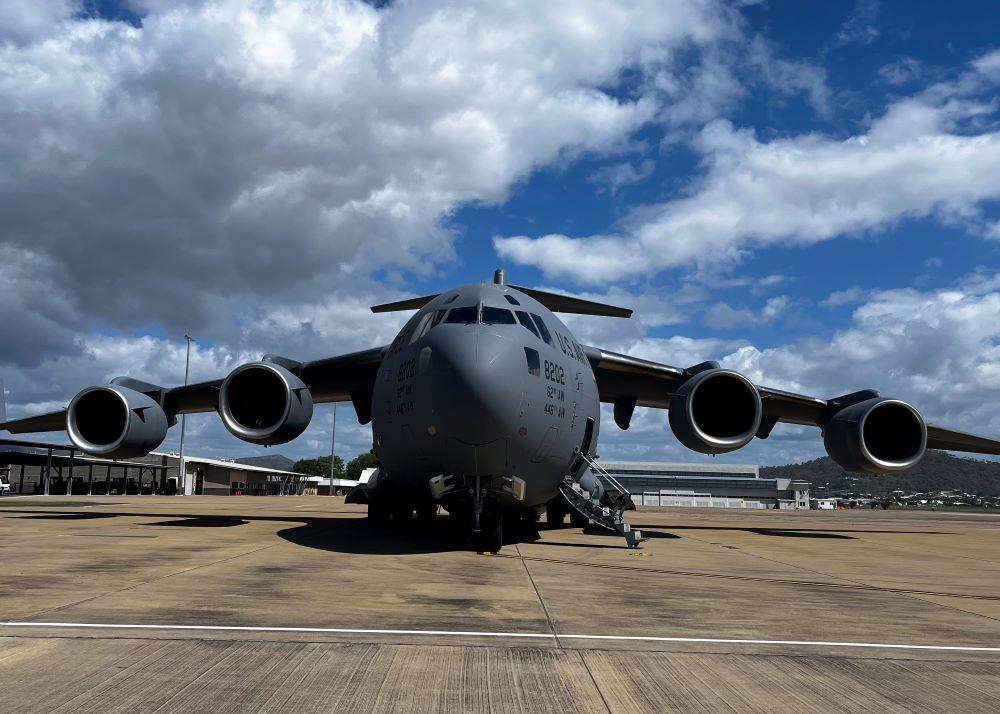This article is published in Aerospace Daily & Defense Report part of Aviation Week Intelligence Network (AWIN), and is complimentary through Nov 06, 2024. For information on becoming an AWIN Member to access more content like this, click here.

A Boeing C-17 at Joint Base Lewis-McChord, Washington, in August.
An anonymous tip about an expensive soap dispenser for the lavatory on a Boeing C-17 Globemaster III has led to the Pentagon’s watchdog urging the U.S. Air Force and Defense Contract Management Agency to increase oversight of contracts with a warning that it could impact the fleet’s readiness.
The Defense Department Inspector General on Oct. 29 released an investigation into Boeing’s performance-based logistics contract for the C-17, finding that the Air Force substantially overpaid for randomly selected spares.
“Until the Air Force establishes controls to require contracting officials review spare parts purchase throughout the execution of the contract, the Air Force will continue to overpay for space parts for the remainder of the [logistics] contract, which continues through 2031,” the report says. “The Air Force overpaying for spare parts may reduce the number of spare parts that Boeing can purchase on the contract, which could reduce C-17 readiness worldwide.”
The IG said it received a hotline call specifically focusing on the Air Force overpaying for a soap dispenser for the C-17. In response, the office began an investigation and selected 46 parts to review from 2018 through 2022. As part of a September 2021 indefinite-delivery, indefinite-quantity contract, Boeing will receive up to $23.8 billion for C-17 maintenance through 2031. As part of the contract, Boeing was awarded its first delivery order of spare parts worth $648.1 million in October 2021.
The IG found that the Air Force overpaid for 12 of the 46 selected parts at a cost of $992,568. The IG also found that it could not validate the fair and reasonable rate for 25 parts, and that the Air Force did pay a fair and reasonable rate for nine parts.
Specifically for the soap dispenser allegation, the IG report found that Boeing charged a 7,943% markup—more than 80 times the commercially available cost.
The root cause, the IG says, is that the Air Force program office did not validate the accuracy of data used for contract negotiation, conduct surveillance to identify price increases during contract execution and review invoices to determine fair and reasonable prices before payment.
The report outlines a series of recommendations, including that the Air Force direct the C-17 contract officer to require Boeing to notify of price increases of 25% or higher than the proposed price, along with reviewing spare parts prices throughout the execution of the contract and obtain justification of price increases. The Defense Contract Management Agency also needs to review Boeing’s part tracking system to validate the accuracy of forecasting demands for spare parts.





